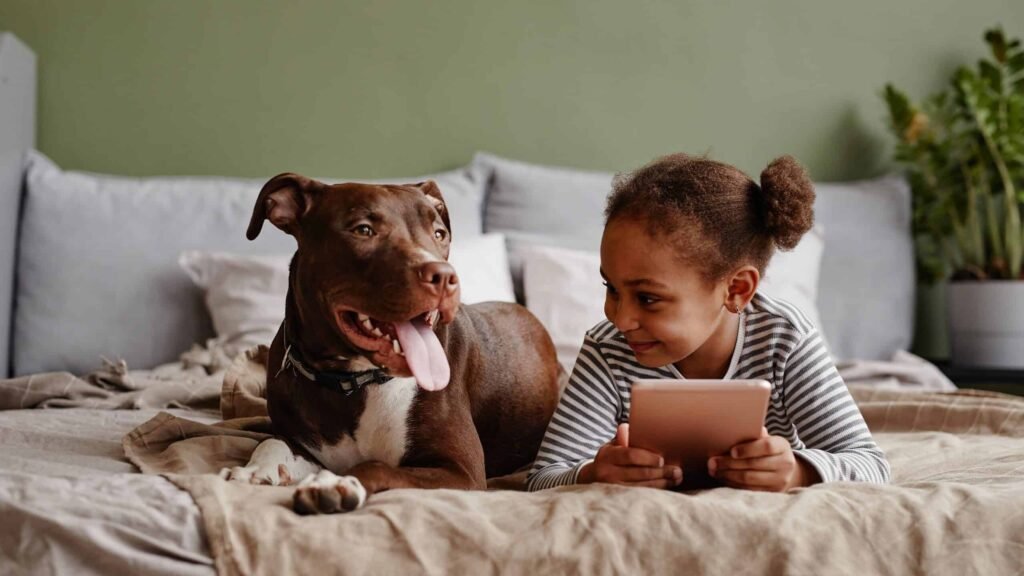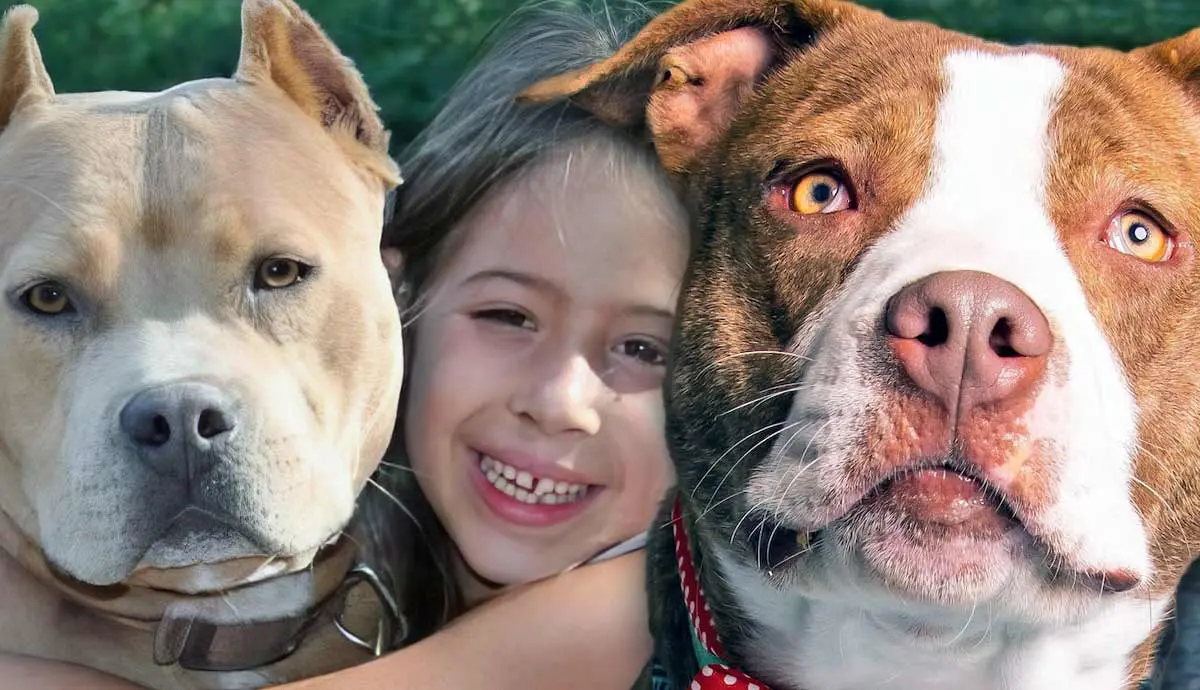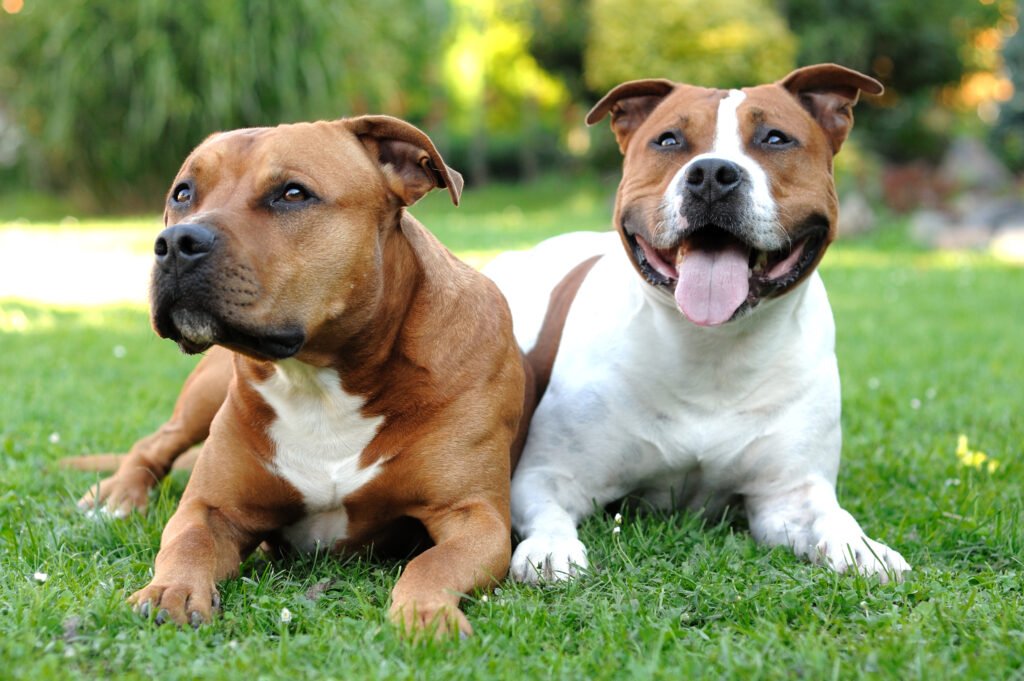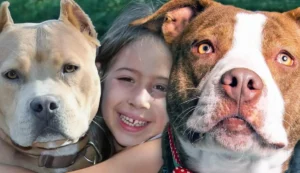Pitbulls and Their Natural Affinity for Children
Pitbulls often get a bad reputation, but those who have spent time with the breed know just how loving, loyal, and gentle they can be—especially with children. Contrary to some misconceptions, Pitbulls are not only friendly but can also form deep, affectionate bonds with kids. Understanding how to build a strong, positive relationship between Pitbulls and children is key to ensuring a safe and loving environment for both.
1. The Pitbull’s Temperament: Understanding Their Affinity for Kids
Why it’s Important:
Pitbulls are known for their affectionate and loyal nature, making them naturally inclined to form strong bonds with their families. Their calm demeanor, intelligence, and protectiveness can be assets when living with children.
Key Traits that Make Pitbulls Great with Kids:
- Affectionate: Pitbulls are known for their love of human interaction, particularly with their owners. They are highly social and enjoy being part of the family, which includes playing with children.
- Gentle and Patient: Despite their muscular build and strength, Pitbulls are often gentle and patient. They are known to be tolerant, which makes them more likely to be understanding of children’s behavior.
- Protective: Many Pitbulls are protective of their family, including kids. They are naturally inclined to watch over their loved ones, offering a sense of security.
2. Socialization: The Key to a Successful Relationship
Why it’s Important:
Socializing a Pitbull from an early age helps them become more comfortable and confident around children, other pets, and various situations. Early exposure to kids and positive experiences can prevent fear or anxiety later in life.
How to Socialize Your Pitbull with Children:
- Start Young: If possible, begin socializing your Pitbull puppy with children. The more positive interactions they have, the better they will adapt as they grow.
- Teach Appropriate Behavior: Introduce your child to the concept of respecting a dog’s space. Teach them not to pull the dog’s ears or tail and to approach gently.
- Supervised Playtime: Always supervise interactions between Pitbulls and children, especially in the early stages. Monitor body language and ensure both parties are comfortable with the interaction.
3. Teaching Kids How to Interact with Pitbulls
Why it’s Important:
Teaching your child how to interact with a Pitbull correctly is essential for ensuring a positive experience for both the child and the dog. Proper behavior around dogs is vital to maintaining a safe, harmonious relationship.
Tips for Teaching Children to Respect Pitbulls:
- Gentle Touch: Encourage your child to pet the dog gently and avoid sudden movements that might startle the dog.
- Avoid Distractions During Meals: Teach your child not to disturb the dog when it’s eating or resting. Dogs need their space during these times to feel secure.
- Set Boundaries: Explain to your child that dogs, including Pitbulls, have boundaries. Never allow your child to take toys or food away from the dog, as this can lead to aggression or fear.
- Positive Reinforcement for Kids: Reinforce good behavior by praising both the dog and your child when they interact positively. This can help your child learn how to respect the dog’s personal space and needs.

4. Supervision: Essential for Safety and Comfort
Why it’s Important:
While Pitbulls are great with kids, all interactions should be supervised. Pitbulls, like all dogs, can become overstimulated or stressed in certain situations, so it’s crucial to be observant and ensure that both the dog and the child are behaving appropriately.
How to Supervise Interactions:
- Watch for Signs of Stress: Look for signs of stress or discomfort in both the Pitbull and the child. If the dog is showing signs of anxiety (such as growling, stiff body language, or trying to retreat), remove them from the situation calmly.
- Monitor Playtime: Play sessions should be fun for both the dog and the child. Keep an eye on how rough or excitable the play becomes to ensure that it stays safe.
- Know When to Step In: If the dog becomes overwhelmed, give them space. Likewise, if your child becomes frustrated or scared, step in and guide them to a calmer interaction.
5. Pitbulls and Children: Building Trust and Respect
Why it’s Important:
A strong relationship between a Pitbull and a child is built on mutual trust and respect. By teaching both the dog and the child how to behave around each other, you can cultivate a long-lasting, positive bond.
Building Trust with Your Pitbull:
- Consistency in Training: Consistent training helps your Pitbull understand what behaviors are expected of them. When they know what’s expected, they can interact more confidently with children and others.
- Positive Reinforcement: Reward your Pitbull for good behavior around kids. Whether it’s sitting calmly while your child plays nearby or responding well to commands during playtime, positive reinforcement strengthens their bond.
- Respect the Dog’s Space: Always teach both your child and your dog that respect goes both ways. The dog should be allowed quiet time in their space, and children should understand the importance of giving them space when needed.
6. The Benefits of Raising a Pitbull with Children
Why it’s Important:
Raising a Pitbull alongside children can have numerous benefits for both the dog and the kids. It promotes a sense of responsibility, compassion, and understanding in children, while also providing the dog with the love and companionship they thrive on.
Benefits for Children:
- Empathy and Responsibility: Caring for a dog teaches children empathy, responsibility, and how to care for another living being.
- Physical Activity: Active breeds like Pitbulls encourage children to play, run, and exercise, promoting a healthy lifestyle.
- Emotional Bonding: Dogs, including Pitbulls, can form strong emotional bonds with children, providing comfort, security, and companionship.
Benefits for Pitbulls:
- Socialization Skills: Growing up with children helps Pitbulls develop social skills and confidence around people of all ages.
- Stimulation and Activity: Active kids often lead to active dogs, which helps keep your Pitbull physically and mentally stimulated.
- Unconditional Love: Pitbulls are loyal and affectionate, and they benefit from the unconditional love and attention children often give them.
7. Conclusion: Nurturing a Positive Relationship Between Pitbulls and Children
Pitbulls have a natural affinity for children and can make incredible family pets when given the right guidance, training, and attention. By focusing on socialization, supervision, and teaching both the dog and child how to interact respectfully, you can build a strong, lasting bond between your Pitbull and your kids.
With patience, consistency, and love, Pitbulls can become devoted family members who not only bring joy and security but also help teach children the importance of empathy, responsibility, and kindness towards animals.








